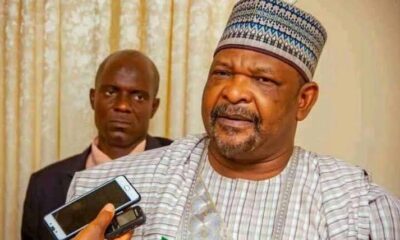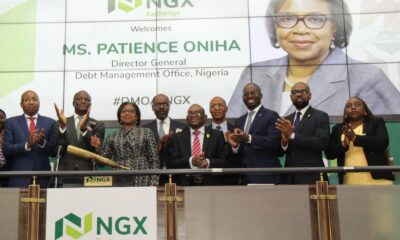The 2024 FGN Budget, titled “Budget of Renewed Hope,” was signed by President Bola Ahmed Tinubu on 02 January’24. There were a few revisions made.
The aggregate expenditure is estimated at N28.7trn which is 11.9% or N1.2trn higher than the initially proposed N27.5trn. This figure is 15.9% higher than the 2023 FGN budget of N24.82trn.
Notably, the allocation to capital expenditure in the approved 2024 budget rose by 13.8% to N9.9trn, accounting for 34.5% of the total expenditure, compared to the initial proposed figure of N8.7trn. The increased capital spending aligns with the FGN’s intent to reduce the country’s infrastructure deficit gap. We note that the 2024 budget estimates point towards a fiscal deficit of N9.1trn (approximately 3.88% of the 2024 estimated nominal GDP), which is considerably lower than N13.8trn estimated in the 2023 FGN budget.
The projected fiscal expenditure also includes an increase in statutory transfer to N1.7trn from the initial N1.3trn in the proposed budget However, non-debt recurrent expenditure declined by – 15.5% to N8.7trn from the initially proposed N10.2trn. However, the debt service estimate remained unchanged at N8.2trn.
Furthermore, there was a slight modification in the assumptions underlying the budget. The exchange rate was revised upward to N800/USD from N750/USD. However, other assumptions remained unchanged (oil price benchmark of USD77.9/b, oil production of 1.78mbpd, inflation rate of 21.4%, and GDP growth rate of 3.76% y/y).
There were notable budgetary reallocations, for example, the National Judicial Council received a substantial increase by +107% from N165bn to N341.6bn. Similarly, the allocation to the National Assembly increased by 74.23% to N344.8bn from N197.9bn.
This marks the highest allocation to the National Assembly. Other budgetary reallocations include Niger-Delta Development Commission: N338.9bn (previously N324.8bn), Universal Basic Education Commission: N263billion (previously N251.4bn), Public Complaints Commission: N14.4bn (previously N13.6bn), Northeast Development Commission: N131.8bn (previously N126.9bn), Basic Healthcare Provision Fund: N131.5bn (previously N125.7bn) National Agency for Science and Engineering
Infrastructure: N131.5bn (previously N125.7bn).
The estimated revenue to fund the 2024 budget was revised upward to N19.6trn, 78.2% higher than the 2023 provision of N11trn. The breakdown of this revenue estimate shows that N9.2trn
(46.9%) is expected from oil-related sources while the balance of N10.4trn (53.1%) is expected
from non-oil sources.
Overall, the revenue projections point towards expectations of improved revenue inflow, on the back of the removal of PMS subsidy, fx depreciation following the fx liberalization policy, and increased collection of non-oil taxes.
In our view, achieving the proposed revenue target in 2024 would require deliberate efforts towards tackling the challenges in the oil sector. Average oil production from January – November ‘23 was 1.46mbpd. This is below the FGN 2023 oil production target of 1.72mbpd. In 2024, we expect oil production to range between 1.4 -1.6mbpd, still below the FGN’s 2024 oil production target of 1.78mbpd.
On the other hand, it is worth highlighting that actual non-oil revenue has exceeded FGN’s target by an average of 9.4% since FY2021. Additionally, as at end-September ’23, we note an overperformance of non-oil revenue (N2.5trn exceeding the prorated target of N1.8trn). We expect the FGN to increase its tax mobilization initiatives and further enhance independent revenue generation and collection efforts, especially from government-owned enterprises (GOEs). The proposed fiscal deficit of N9.1trn is expected to be financed by new borrowings totaling c.N7.8trn (domestic: c.N6.0trn, external: c.N1.7trn). Other sources of deficit financing include privatization proceeds of c.N298.4bn and drawdowns on bilateral/multilateral projects/programs of c.N941.1bn.
Regarding ways and means advances from the CBN, we note the senate’s approval to securitize c.N7.3trn of the ways and means advances to a 40-year bond at 5% interest. In early 2023, N23trn was securitized to a 40-year bond at 9% interest. This brings the total amount of securitized ways and means advances to N30.3trn. Although securitization would reduce the cost of debt service and enhance debt transparency, it will concurrently elevate the total public debt stock to approximately N95.2trn. This represents 47.7% of the 2022 nominal GDP, surpassing the debt management office’s (DMO) debt-toGDP ratio target of 40% set for the period of 2020-2023. However, we understand that there are plans to revise Nigeria’s debt-to-GDP ratio target.
The revenue targets are laudable and indeed optimistic. However, we must emphasize that without a significant acceleration of revenue-based fiscal consolidation efforts, the FGN may fall short of meeting its revenue targets. A scenario that could potentially have negative implications for debt sustainability. However, it is important to recognize that challenges present opportunities for strategic adjustment and enhanced fiscal policies. Encouraging proactive measures and innovative strategies to boost revenue can position the FGN for greater fiscal resilience and contribute to achieving its financial goals for sustainable development.

 Naira4 weeks ago
Naira4 weeks ago
 Naira4 weeks ago
Naira4 weeks ago
 Travel4 weeks ago
Travel4 weeks ago
 Jobs4 weeks ago
Jobs4 weeks ago
 Naira3 weeks ago
Naira3 weeks ago
 Naira4 weeks ago
Naira4 weeks ago
 Investment4 weeks ago
Investment4 weeks ago
 Travel4 weeks ago
Travel4 weeks ago



























